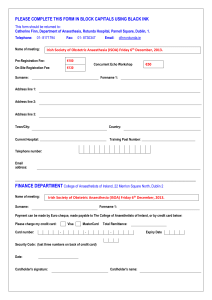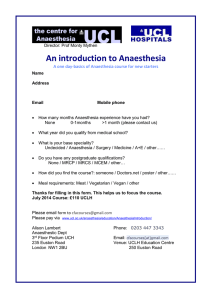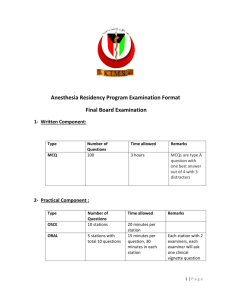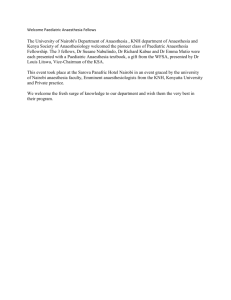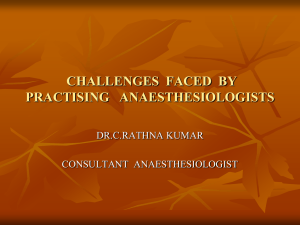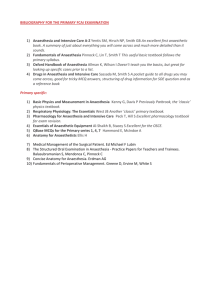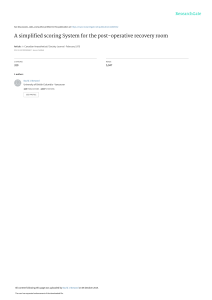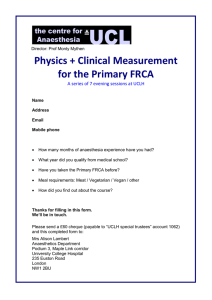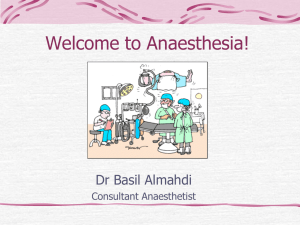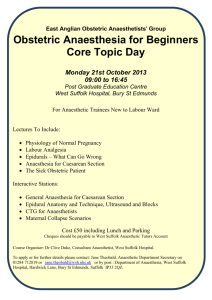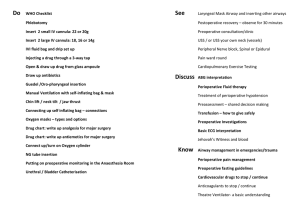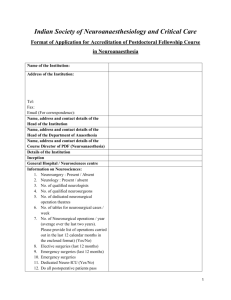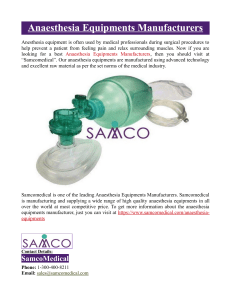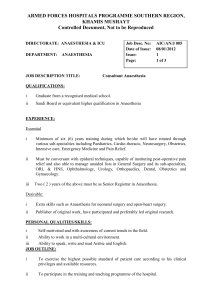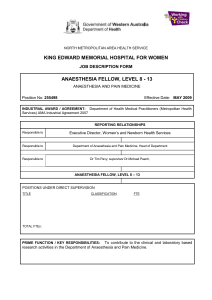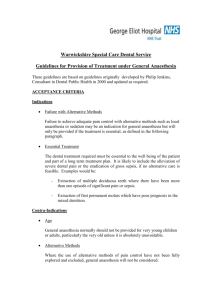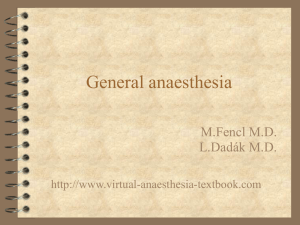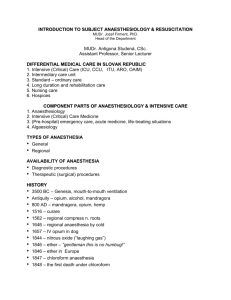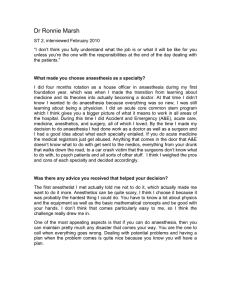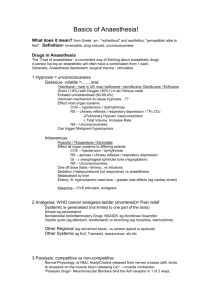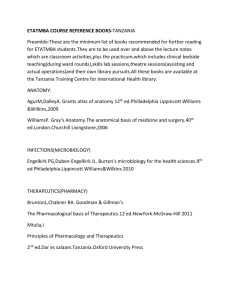Dr Graham Lowry - "Developing Simulation Scenarios: Looking
advertisement
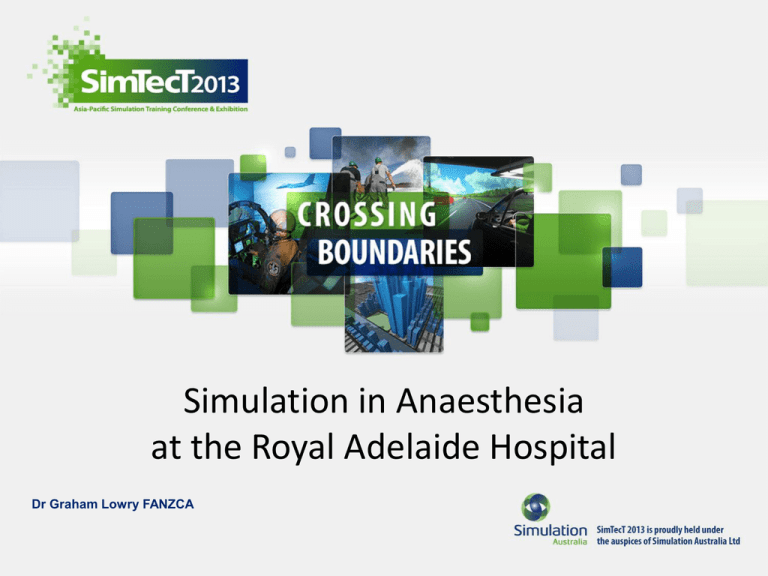
Simulation in Anaesthesia at the Royal Adelaide Hospital Dr Graham Lowry FANZCA The Royal Adelaide Hospital Adult Tertiary Teaching Hospital ∞ Affiliated with the University of Adelaide ∞ 680 beds ∞ 23 operating theatres ∞ 24 ICU / 10 HDU/ICU beds Major trauma referral centre for Sth Australia ∞ Receives 800 retrievals/year Department of Anaesthesia Branch of Critical Care Anaesthesia/Pain/Hyperbaric medicine 52 FTE Consultants 32 Registrars Simulation Unit Operational since 2003 Teaching/education role ∞ Interns ∞ Registrars/trainees ∞ Consultant anaesthetists ∞ Technical and non-technical skills Relatively low budget Specialty of Anaesthesia Five years of postgraduate training ∞ Major focus of training on developing technical skills Conflict of decreased working hours versus need for clinical experience ∞ Aging population ∞ More complex surgery Increased emphasis from ANZCA for training in nontechnical skills. Why Consultant Anaesthetists? Historically, a lack of training in this area Often seen as leaders during a crisis in theatre BUT: ∞ No leadership training ∞ Often poor followers Crisis Resource Management training is not mandatory The Scenarios Clearly defined goals important Simple clinical scenarios ∞ Diagnostic uncertainty useful for teaching human factors ∞ Team dynamics create complexity ∞ Level of fidelity always a challenge Self reflection and evaluation important learning component Challenges……1 Changing the culture Stressful for ∞ for participants ∞ facilitators Labour intensive ∞ maintaining service commitment versus patient safety and quality of care. Challenges……2 Availability of relevant, validated outcome measures. Adequate funding and resource allocation Managing participants’ expectations and comfort levels Advantages ……1 Allows training/experience in rare (but catastrophic) events Breaks down the “silos” Work as a team, train as a team even if the “team” is constantly changing Advantages ……2 Training/practicing in context Issues of access to facilities Moving beyond the operating theatre…
